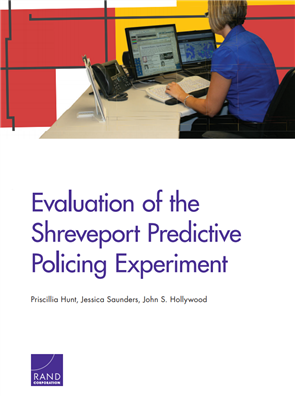Evaluation of the Shreveport Policing Experiment
The National Institute of Justice (NIJ) funded the Shreveport Police Department (SPD) in Louisiana to conduct a predictive policing experiment in 2012. SPD staff developed and estimated a statistical model of the likelihood of property crimes occurring within block-sized areas. Then, using a blocked randomized approach to identify treatment and control district pairs, districts assigned to the treatment group were given maps that highlighted blocks predicted to be at higher risk of property crime. These districts were also provided with overtime resources to conduct special operations. Control districts conducted property crime–related special operations using overtime resources as well, just targeting areas that had recently seen property crimes (hot spots). This study presents results of an evaluation of the processes in addition to the impacts and costs of the SPD predictive policing experiment. It should be of interest to those considering predictive policing and directed law enforcement systems and operations, and to analysts conducting experiments and evaluations of public safety strategies.
Author: Priscillia Hunt, Jessica Saunders, John S. Hollywood
Federal Sponsor Agency: National Institute of Justice
Provider: RAND Corporation
Publication Date: 2014
